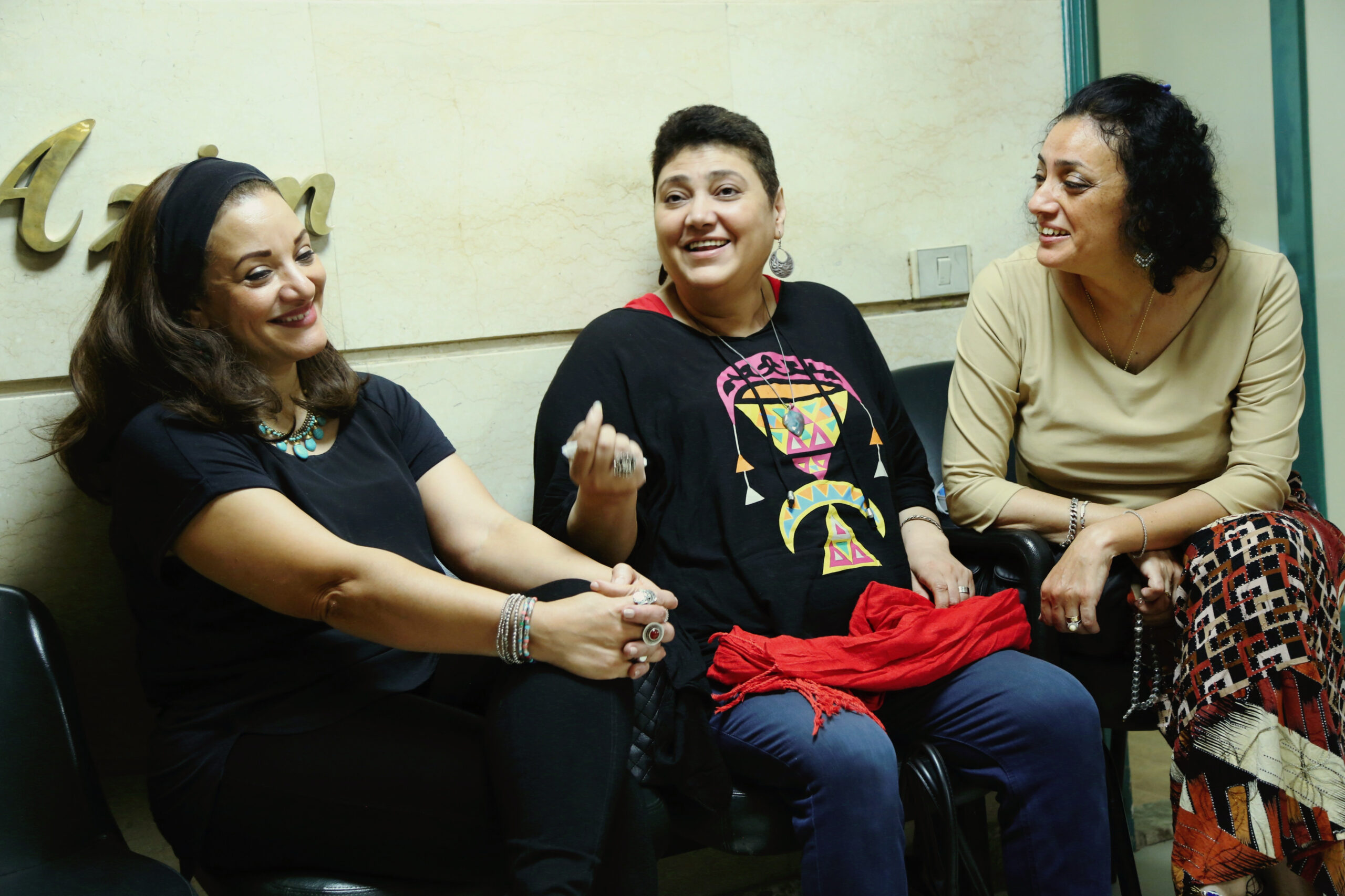Alaa Mahmoud’s warm documentary Triangle of Love is built entirely of talk, late night confessions, jokes in waiting rooms, medical consultations. The emotional building in the documentary is carried by dialogue. Shown as a Cairo Film Festival Special Screening, the film is fascinated with how people speak when they are in a state of loving, grieving, and trying to make sense of life and illness.
At the centre of the story is the late Maha Al-Shenawy, once a filmmaker, professor at the Higher Institute of Cinema, and the wife of director Khaled Bahgat and mother of producer Mostafa Bahgat. Director Alaa Mahmoud was her student. Although the film does not introduce her through formal biography, her intellectual and emotional presence completes every frame in her portrayal of a person who loved life.
Mahmoud lets us get to know Al-Shenawy through her voice: its wit, its sharpness, its fatigue. She is a woman shaped by movies and by teaching, someone who has been able to balance artistic sensibility with maternal pragmatism. Although the film delves into very intimate moments in medical consultations and in the hospital, it does not strip her of agency but gently reveals her stubborn resilience, her tendency to protect others from her pain.
An important part of the film is devoted to her illness and medical visits with her physician, Dr. Boutros. They go from a casual checkup to philosophical conversations, discourse about the divine and illness. He moves from clinical reassurance, explaining normal blood counts, to philosophical monologues, reflecting on the meaning of death and why “life is also a doctrine” that deserves to be preached. Between these back-and-forth conversation, fragments of joking dialogue prevent the film from becoming a pure cancer narrative.
Most scenes in Triangle of Love are formally modest, yet that is where the triangle of love fully appears. Maha is present only in memory and in the earlier footage, but the way Alaa and Moustafa address her, argue about her, and imitate her expressions keeps her alive. Their dialogue is used as an act of summoning. When they speak about Maha, they include her in the frame.
Two years after her death, the dynamic shifts. The primary conversation is between Alaa and Mostafa, who finally down to talk about what remained unsaid. Their dialogue turns the film back on itself. Moustafa lists “excuses and obstacles” that kept him away and admits that no pile of excuses can absolve his guilt. He keeps imagining all the extra hours he could have spent with his mother and still concludes, “I don’t feel like I was doing enough.” Alaa gently counters with a different perspective, talking about how children always feel they have failed their parents, even when the parents were absent.
She does not appear as a symbol of weakness, but rather as a complex, generous, intellectually grounded person whose absence breaks the hearts of the ones who survive her. Mahmoud’s documentary allows her voice to become the central archive, which Alaa and Mostafa return to, argue with, and resurrect.
Director, screenwriter, cinematographer: Alaa Mahmoud
Editing: Alaa Mahmoud, Alia Ibrahim
Producer: Mostafa Bahgat
Venue: Cairo Film Festival (Special Screenings)
In Arabic
80 minutes

